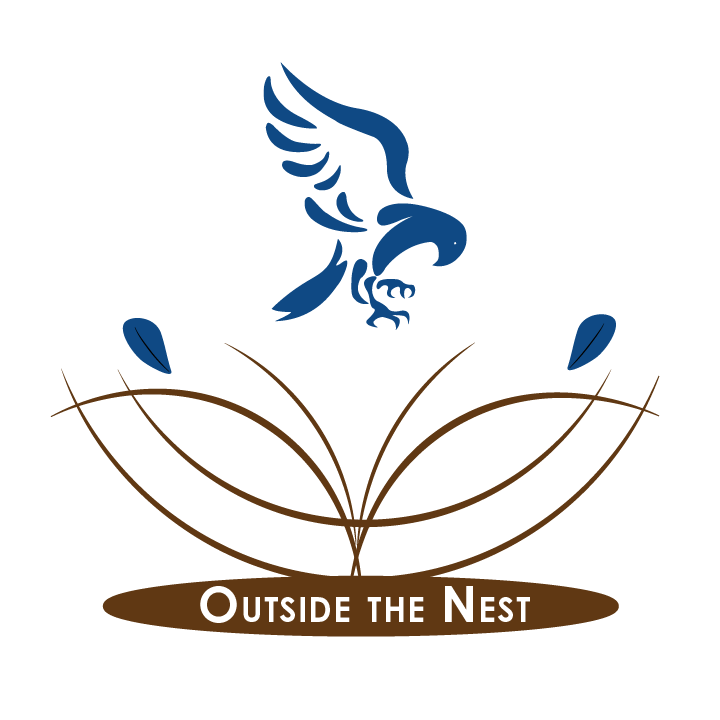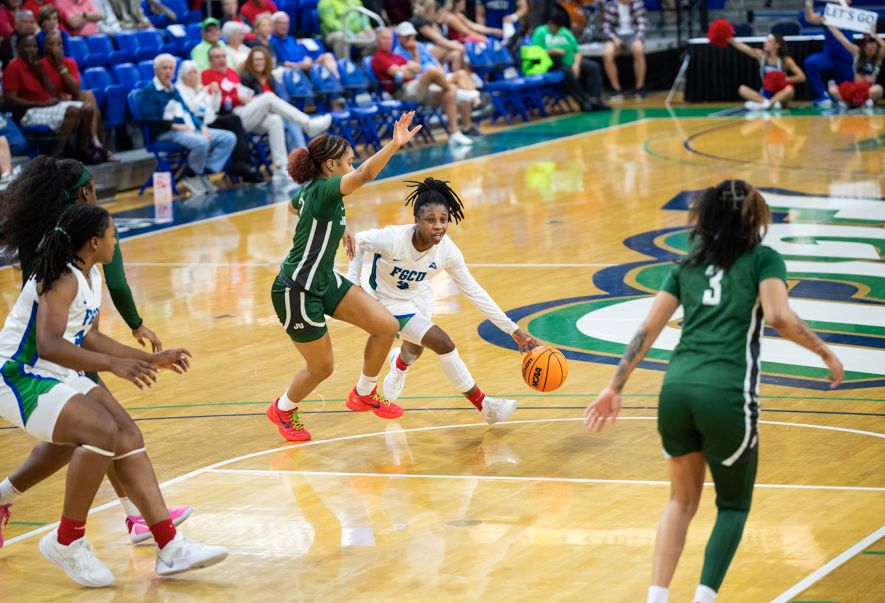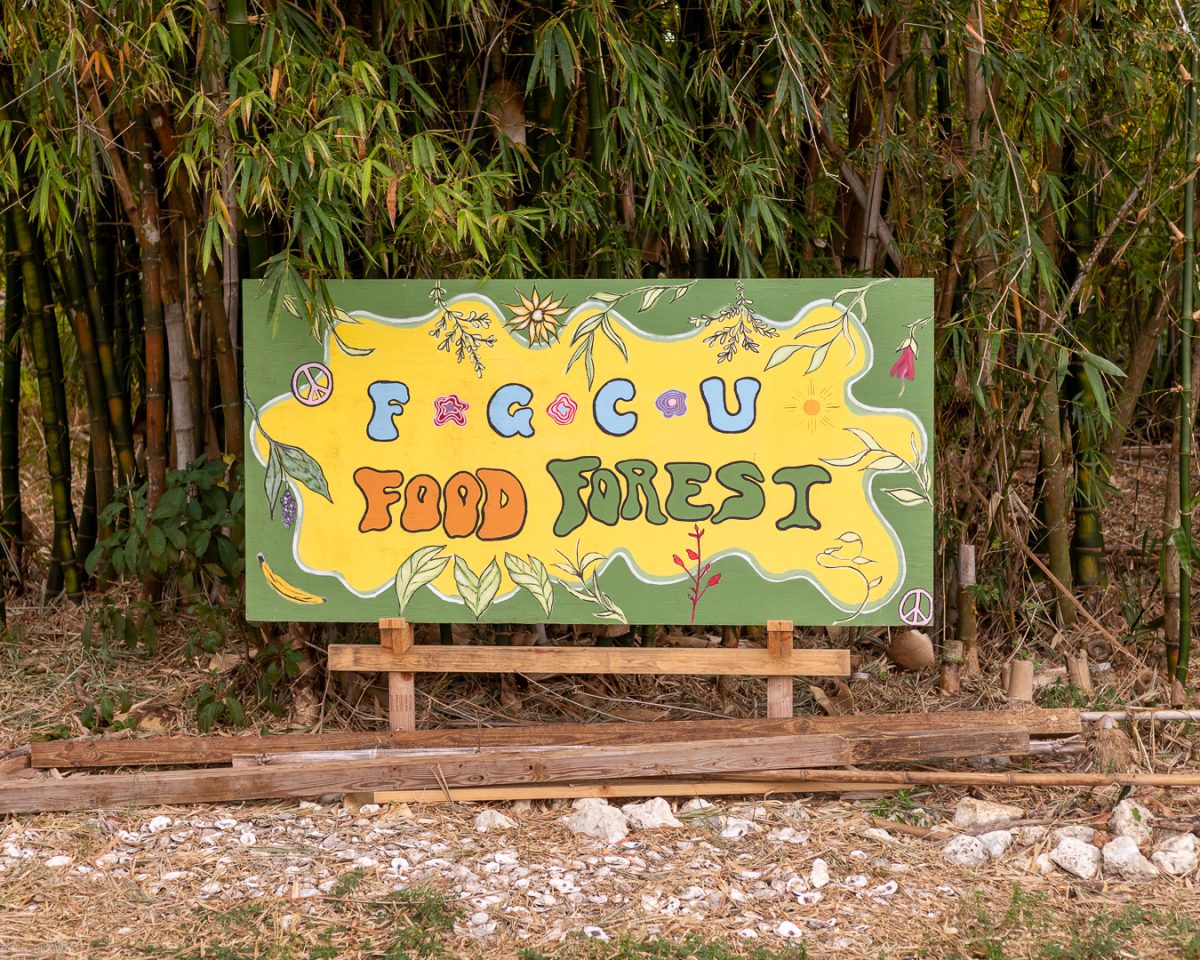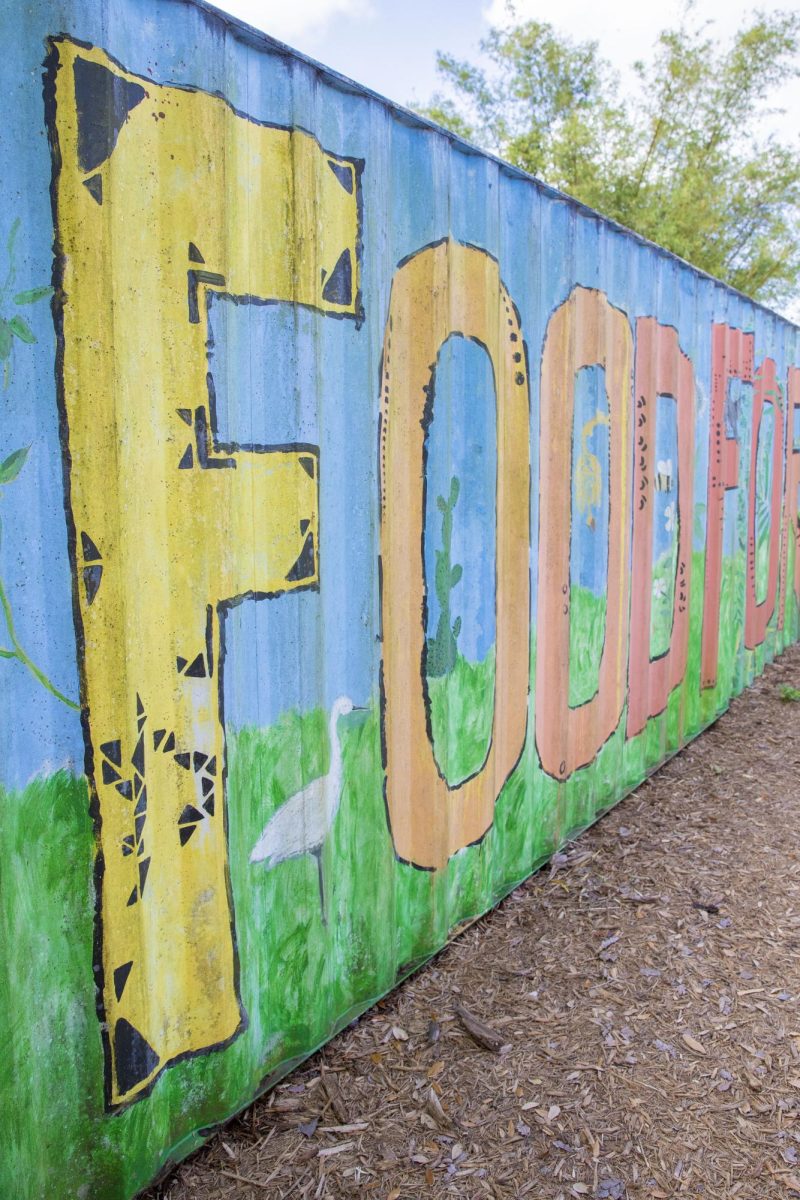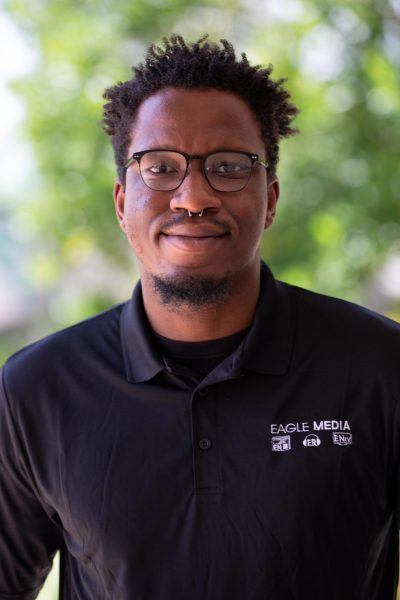Throughout its 32-year history, environmental sustainability has been one of the fundamental values of FGCU. Principles of sustainability are instilled in students through service learning opportunities, transportation methods and campus-wide initiatives.
The Food Forest is a student-run garden that aims to educate the community on sustainable agricultural practices. Contributing to the maintenance of the Food Forest is one of the many ways students can complete service-learning hours.
The design of the forest is based on the practice of permaculture. Every plant species that is grown there is able to flourish in Southwest Florida’s climate without requiring much maintenance or overusing resources.
Senior Isabel Lane is one of the Food Forest’s Student Coordinators. She began her involvement with the organization two years ago after taking the Permaculture Design and Food Forest Gardening Courses taught by Professor Alexander Nikesch. Previously studying political science, Lane said she switched her major to integrated studies to explore the agricultural education courses offered by the department.
“I feel like FGCU has definitely been, in a lot of ways, at the forefront of sustainability-based education, especially in Florida. We’re one of the first universities to start a Food Forest,” Lane said.
The Food Forest acts as a gathering place for the community, promoting social development by engaging students and outside visitors alike on the sustainable production of organic food. One of the ways the Food Forest achieves this community outreach is by offering educational tours.
“We give a lot of tours. We educate visitors on these different techniques of growing plants and hope it trickles out into the community so that people can implement these methods in their yards with what they’re growing,” Lane said.
Another sustainable service-learning opportunity students can partake in is located in the SoVi Garden. Volunteers are involved in producing and maintaining the fresh seasonings and herbs that are used in the dishes served at SoVi Dining. The garden aims to foster an understanding of water conservation in food production while teaching students how to cultivate plants.
Sustainability initiatives can also be noted in the modes of transportation that students can choose to take.
In addition to the Eagle Express shuttles that transport students between main campus and residential housing areas, FGCU provides students with the option of checking out a bicycle as a way to get around. Using the Pedal Power Bike Loan program, students can borrow a bike for up to one week at a time. The program aims to reduce carbon emissions and promote regular exercise habits.
Around campus, several Bicycle Fixit Stations have been installed to encourage this mode of transportation. These stations provide the proper equipment needed to carry out simple bicycle maintenance, such as filling or replacing flat tires.
FGCU has also partnered with The GOAT Guys, a locally-owned e-scooter company, to provide more sustainable campus transportation options. The GOAT scooters run on rechargeable batteries and are considered to be a cleaner alternative to gasoline-powered vehicles.
To promote the conservation of energy, FGCU implemented the Turn Me Off initiative. This initiative tracked the consumption of energy by offices and computer labs that are left on during idle hours to identify where energy was being wasted.
Kathleen Crawford, FGCU’s sustainability coordinator, said the data collected showed that offices weren’t necessarily the cause of overconsumption; classrooms were.
“We did find trouble with energy consumption in classrooms,” Crawford said. “It was such a simple solution to put signs up that say ‘Turn me off.’ Students through high school probably were told to not touch things, that they would get in trouble. So, all it took for a behavioral change was kind of just permission to go and turn the lights off. It was such an immediate effect.”
These reminders, which read “Love Blue, Live Green,” are also found on the light switches installed in FGCU’s residential dorms, reminding residents to power down their dorms before they leave.
Similarly, the laundry facilities located in the residential buildings house informational posters that educate residents on the benefits of running their wash cycle with cold water. Using cold water has been found to be less energy-consuming and more cost-effective than using hot water to wash clothes.
FGCU has made many strides to inform students on how to be more sustainable during their time on campus. Between the extensive array of service-learning opportunities and several initiatives introduced to promote sustainability, students encounter several ways they can implement sustainable living practices in their day-to-day lives.




